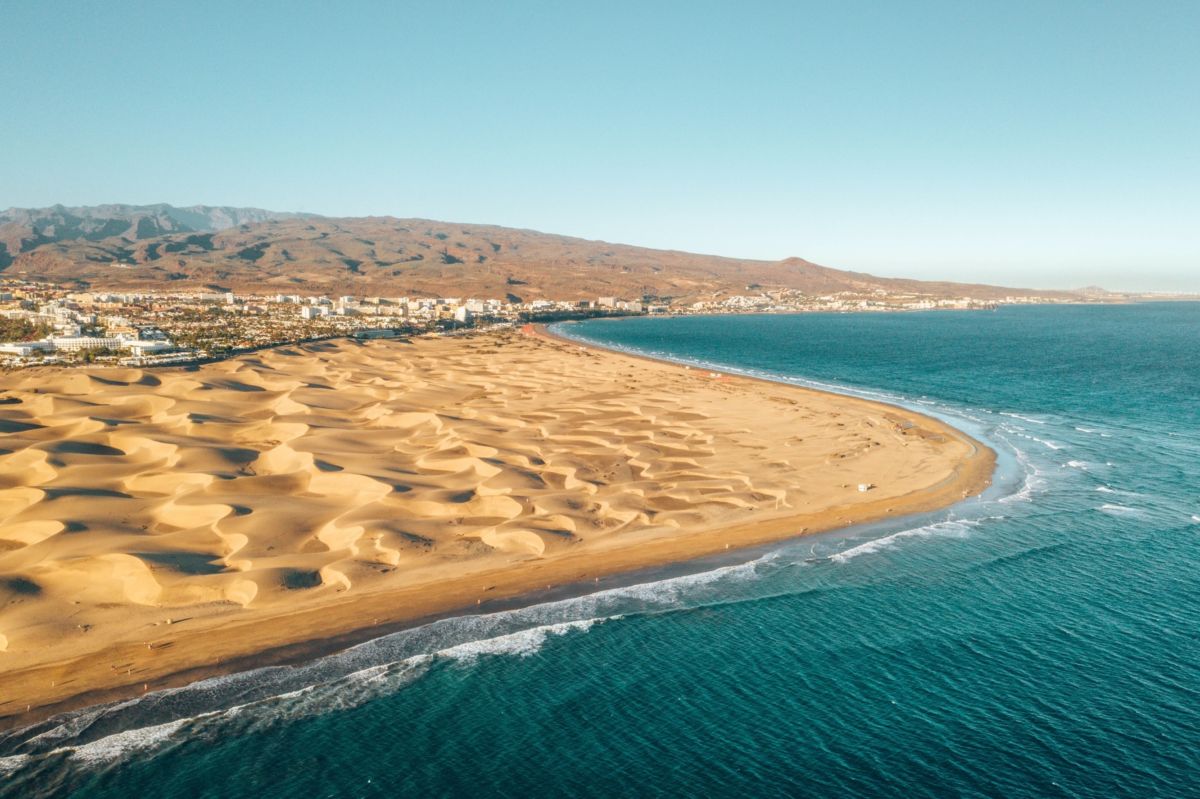Spain has managed to maintain its number of Blue Flags, a total of 729, which will be raised from June onwards, distributed among 627 beaches, 97 marinas and five tourist boats. The Valencian Community leads in the number of beaches with this distinction, while the beaches of the Canary Islands have been awarded 60 flags, which represents an increase of two flags over the previous year. This recognition indicates the commitment of Spanish tourist destinations to environmental quality and sustainability.
The four new Blue Flags on Canary Islands beaches are those of Maspalomas, Meloneras and San Agustín, in the south of Gran Canaria, and Los Cristianos, in Tenerife.
BLUE FLAGS ON THE CANARY ISLANDS BEACHES
By islands, Gran Canaria has 13 blue flags, corresponding to Las Nieves, in Agaete; Arinaga, in Agüimes; El Puertillo and Los Charcones, Arucas; Sardina, in Gáldar; El Burrero, in Ingenio; Playa del Inglés, Maspalomas, Meloneras and San Agustín, in San Bartolomé de Tirajana; and Hoya del Pozo, Melenara and Salinetas, in Telde.
On Tenerife, with 14 awards, Jover beach, in La Laguna, is the first beach to be awarded, and El Duque and Torviscas (Adeje); El Camisón, Las Vistas, Los Cristianos (Arona); El Muelle and El Caletón (Garachico); Playa de la Jaquita (Guía de Isora); San Marcos (Icod de los Vinos); El Socorro (Los Realejos); Bajamar and El Arenisco (La Laguna); and lastly, La Arena (Tacoronte), maintain the flag.
On Fuerteventura, Corralejo Viejo, Grandes Playas and La Concha, in La Oliva; Butihondo, Costa Calma, El Matorral and Morro Jable, in Pájara; Playa Blanca, Los Pozos, Puerto Lajas, in Puerto del Rosario; and Gran Tarajal, in Tuineje, maintain the flag.
On Lanzarote, El Reducto, in Arrecife; Las Cucharas, in Teguise; Playa Grande, Matagorda, Pila de la Barrilla and Pocillos, in Tías; and Playa Blanca, in Yaiza, will carry the blue flag.
On La Palma, Bajamar, in Breña Alta; Los Cancajos, in Breña Baja; Charco Verde and Puerto Naos in Los Llanos de Aridane; Santa Cruz beach, in the capital of La Palma; and Puerto de Tazacorte, in that municipality.
On La Gomera, the blue flag is flying over Playa Santiago, Alajeró; and La Cueva and the beach of San Sebastián de la Gomera, in the capital.
On El Hierro, La Restinga, in El Pinar, and Timijiraque, in Valverde, fly the blue flag.
BLUE FLAGS IN SPAIN
In this way, the beaches of Spain, which this year have achieved six more ‘Blue Flags’ than in 2022, maintain the world leadership they achieved in 1994, accumulating 15% of the total number of awards, followed by Greece and Turkey. This year there are 10 new beaches in Spain with this distinction and 22 that recover them in this edition.
In terms of marinas, which this year is down by six, Spain is the third country, behind the Netherlands and France. In 2023, 101 marinas have been presented (four less than last year), due to the carrying out of works which makes the award impossible.
The presence of Spanish municipalities in the ‘Blue Flag’ programme in 2023 has increased by two, to 250 municipalities, which have submitted 689 beaches as candidates for the award (three less than last year). 91% of the candidate beaches have achieved the ‘Blue Flag’.
The Valencian Community continues to lead the number of ‘Blue Flags’ in Spain, with 153, followed by Andalusia, with 148 ‘Blue Flags’, Galicia, with 125, and Catalonia, with 120. The remaining communities according to the number of ‘Blue Flags’ awarded are: Canary Islands (60), Balearic Islands (42), Murcia (34), Asturias (15), Cantabria (11), Extremadura (10), Basque Country (4), Melilla (4), Ceuta (2) and Madrid (1).
At the press conference, the Secretary of State for Tourism, Roxana Morillo, stressed that the ‘Blue Flag’ programme “is a social phenomenon in many countries and a symbol of international recognition”. She also pointed out that Spain is a world leader in this field, present in 47 countries, and that since 1994 our country has topped the ranking of beaches and tourist boats.
SPECIAL MENTIONS
The Association for Environmental and Consumer Education (ADEAC) also awards ‘Special Mentions’ to three Blue Flag municipalities that make greater efforts in relation to environmental education, lifeguard services and accessibility and care for people with disabilities. The Jury of the ‘Special Mention for Accessibility and care for people with disabilities’ decided to award the mentions to Alicante (Alicante), Gandía (Valencia) and Rota (Cádiz).
The Jury for the ‘Special Mention for Lifeguard Services’ decided to award prizes to Gandía (Valencia), Mijas (Málaga) and Muro (Balearic Islands). Finally, the Jury for the ‘Special Mention for Environmental Education’ recognised Arucas (Gran Canaria), Orihuela (Alicante) and Vilaseca (Tarragona).






